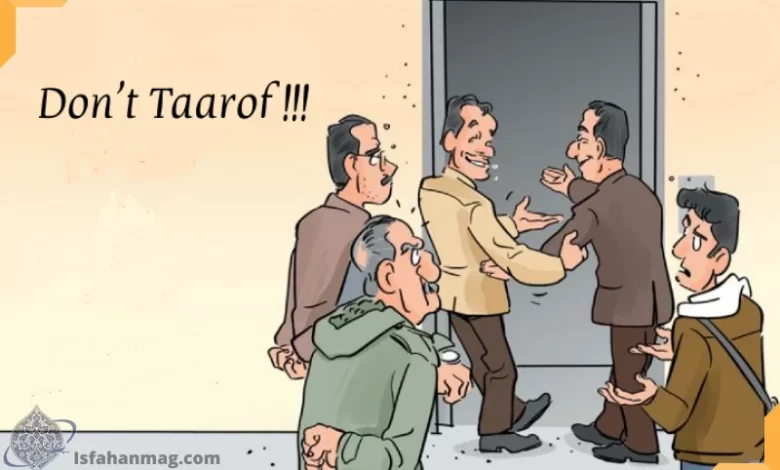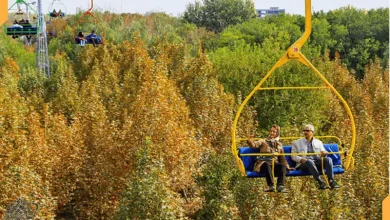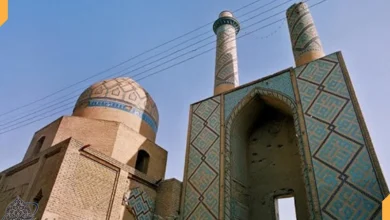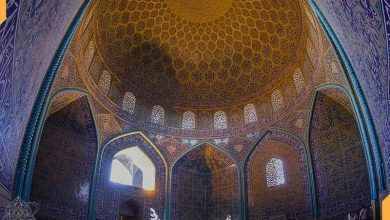Persian Taarof, what is Tarof in Iran

Do you know what the meaning of Persian Tarof (Taarof) is? Or what is Tarof in Iran? In fact, Iranian are famous to many Tarof, and sometimes, the other side doesn’t know how to respond to Tarof.
In this article, we are going to learn more about the concept of Tarof in Iranian culture.
What is Etiquette?
Etiquette is a series of norms and principles that shows acceptable behavior and communication with others in a special social position; so, etiquette is a kind of social communication pattern that humans interact with each other in its framework. In fact, one of the commonalities of all cultures is etiquette patterns.
Tarof in Iranian culture
Totally, Tarof is Iranian etiquette. Tarof is one of the Iranian traditions that roots in rich culture and Iranian politeness and there isn’t any sample or replacement to define it in outside of Iran’s borders.
This tradition that has penetrated all aspects of Iranian life, is considered one of the most important points that you should know during travel to Iran.
According to a foreign tourist: “Tarof is one most complex etiquette arts of Iranian.”
Different kinds of Tarof
We can divide Iranian Tarof into the following four groups:
Verbal Tarof: this kind of Tarof consists of all Tarof that exists in conversations and daily relations of people.
Practical Tarof: means all Tarof that Iranian show in a practical way; like inviting others, preparing different kinds of foods, fruit, and sweets in accommodation, and giving present and flowers on different occasions.
Paraverbal Tarof: in this Tarof, people use body postures, hand and face for Tarof to each other; Like postures of hand that is being used for inviting guests to the dining table or giving gifts to others.
Written Tarof: this kind of Tarof is seen in different forms; like Tarof which is common in formal and informal letters.
Even this kind of Tarof is seen in congratulation and condolence ads in newspapers and magazines and on the invitation cards for different occasions.
Tarof; Exaggerated Respect
“Tarof” is one of the social norms among Iranian that is a sample of mutual respect and emphasizes on social rank and it is considered a sign of respect. Tarof consists of a wide range of behaviors in etiquette and has an important role in social interactions.
In the world of Tarof, politeness possesses a high position.
People by Tarof, reject what they accept, say something that they don’t mean, express something that doesn’t sense, invite others without having any intention to ask, and even inject hope into the others instead of transferring bad news.
People express something that they hope to be that way; without considering the truth.
Tarof in Iranian culture is so deep-rooted that is one of the characteristics of Iranian culture; so it is the subject of research by many tourists and travelers.
For example, William Bimen, an American anthropologist, in the book “language, social status, and power in Iran” wrote that:
“A kind of inside and outside encounter is dominant on the thought and behavior of Iranian that turned keep up appearance to one of the most fundamental behaviors.“
Carla Sorena in her itinerary with the title of “people and spectacular places of Iran” wrote about Tarof: “the phrases that Iranian use as Tarof is both flattering and hyperbolic and also one of the specific characteristics of Iranian.
The first phrases of welcoming are: you have arrived at your home. That place belongs to you.
I’m caretaker and at your service; But if a person takes these Tarof seriously, he will soon understand that his hat is gone.”
Origin of Tarof in Iranian culture
The thing that is differentiating between Iran and other countries in the Middle East region is a “Persian culture” that roots in traditions, language, and different kinds of rich Iranian art, like literature.
The poems of Molana, Ferdowsi, Hafez, and Khayyam are getting considered in the west and south of the world.
Iranian love their heritage and honor it.
Tarof is a kind of Iranian characteristic. If we show ourselves so frank, it is considered impoliteness in Iranian culture.
Affectionate words are so important for Iranian; maybe because of that, the poetic spirit has been blown in the blood of Iranians.
The most notable Iranian thinkers that most of them return to old times, were poets. Due to this, a speech full of kindness and admiration is still flowing in us.
What is the best way to communicate with others?
Because of Iranian kindness and hospitality, the border between Tarof and real kindness is so narrow; for this reason, in every situation that you feel the other person favors more than you expected, you can request other to not Tarof.
This sometimes works and sometimes does not.
Of course, this request is considered a kind of Tarof and probably they want to resist, so you try to show that you are saying this from the heart.
Samples of common Tarof in Iran
May God give you a long life!
- I plea/ beg!
- Widow’s mite!
- May your life be long!
- I will do it with pleasure!
- It’s my pleasure!
- Come here again!
- You’ve been most kind/ it’s very kind of you!
- By your leave!
- You’re great!
- You’re welcome! Don’t mention it!
- leave it out!
Important tips for respectabilities
To revere human is in fact respecting their mindsets and different natures.
We should try to respect every human, otherwise, the relationship between humans was not formed and also no needs were met.
For respecting everyone, it’s necessary to pay attention to some tips that we refer to in the following:
- Always be polite
- Don’t talk with loud voice
- Don’t interrupt anyone
- Don’t look at your watch.
FAQ
What is verbal Tarof?
It consists of all Tarof that exists in conversations and daily relations of people.
What is verbal Tarof?
It consists of all Tarof that exists in conversations and daily relations of people. May God give you a long life!
What is etiquette?
It is a series of norms and principles
Conclusion
Tarof has two faces: false and accurate; the false face is the one that many people expect from Tarof.
False Tarof is seen in our society; like verbal Tarof when inviting somebody to home, when exchanging money between salesperson and buyer, and similar cases.
Also, expressions that we use daily, but are not from the heart.
Another face of Tarof is looking at its positive aspects that it’s not a lie but stems from the kindness of one person to the other.
It means that if we say something or show a special behave is to demonstrate our respect to the other side.
What is your opinion about Iranian Tarof? Do you think it’s necessary to use Tarof expressions?
What other phrases do you know that are related to Tarof? Have you ever used these phrases in your interactions? Share your opinions with us…






